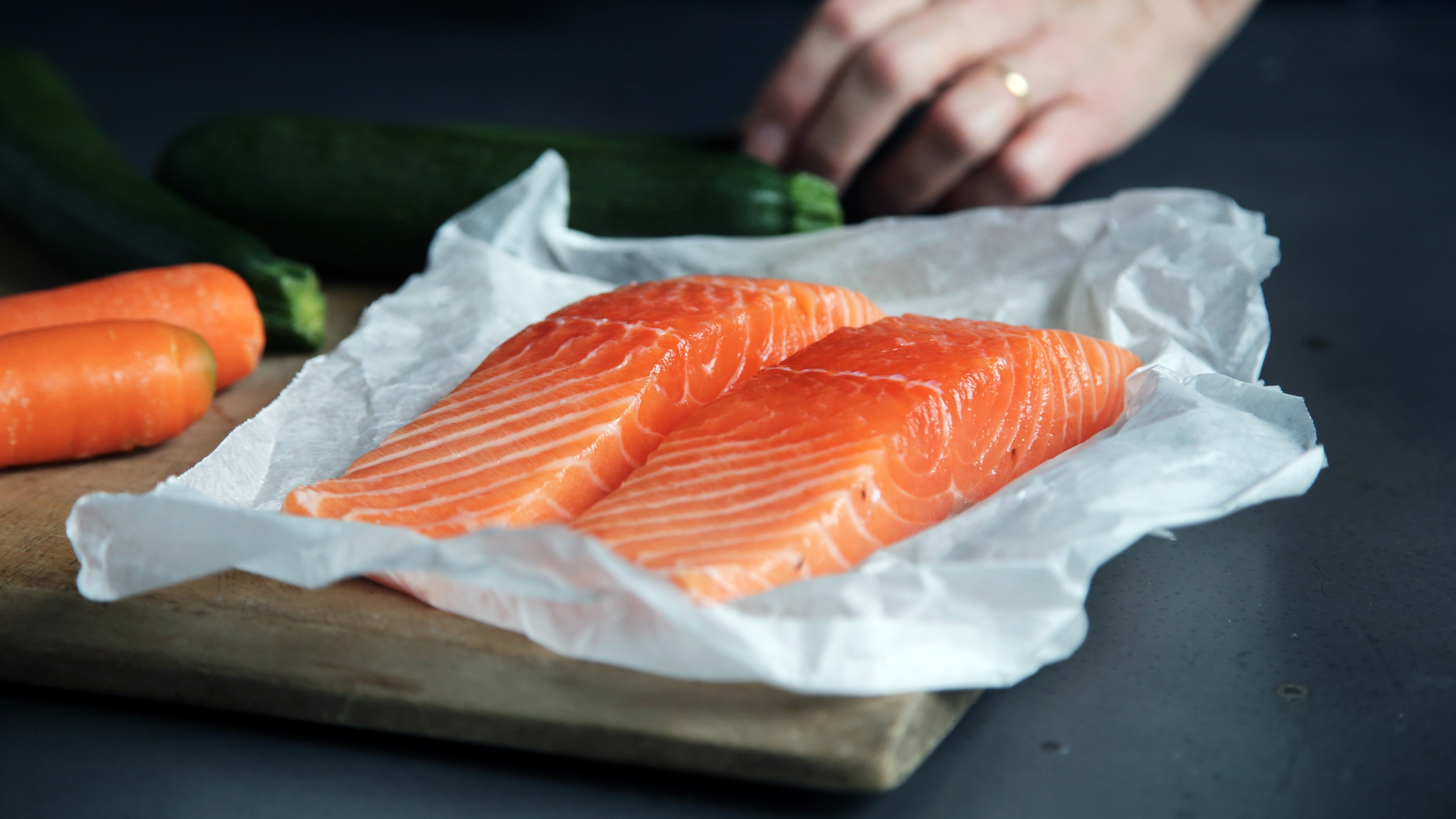FACTS ABOUT THE KETOGEN DIET

Another harmful fad diet or an effective diet? What exactly is the ketogenic diet and what can those who start it expect in the short and long term? Let's examine the ketogenic diet objectively.
We have hidden a code in the post, if you are clever and find it, you will be rewarded with a one-time coupon code entitling you to a 10% discount, which applies to all non-sale products.
I CONTAIN LOW-CARB
It's a mistake to think that low-carb diets have only become popular in recent years. The first trends began at the end of the 19th century, and in the 1960s and 1970s, books on this topic were published one after another, dr. Atkins' works are the most famous. The low-carb diet is a rather broad concept, it includes many diets. There is a trend that limits the consumption of all carbohydrates (including vegetables and fruits), while others prohibit only certain types, such as sugar or starch.
KETOGEN DIET
The ketogenic diet is nothing more than a low-carbohydrate, so-called low-carb trend, which is followed by many people who want to lose weight and athletes. Numerous researches and clinical trials have tested its effectiveness, but its clearly proven long-term effectiveness is disputed. The most important pillar of the diet is a low carbohydrate but high fat intake. It is interesting that we strive to eliminate fat pads, yet we eat fat. The diet is based on scientific principles, but the health risks should not be ignored.
According to the recommendations, the proportion of nutrients in a healthy diet is divided as follows:
- 55-60% carbohydrates
- maximum 30% fat
- 12-15% protein
There is no uniform recommendation regarding the nutritional proportions of a ketogenic diet, but the consumption of carbohydrates is approx. It limits it to 10-15% of energy, while fat intake can reach up to 75% of our daily energy intake. The recommendation of the classic ketogenic diet is the 4:1:1 ratio, i.e. 1 unit of carbohydrate and 1 unit of protein for every 4 units of fat.
If you decide to follow a ketogenic diet, expect that you will have to eliminate not only refined carbohydrates and hidden sugars, but also most fruits and vegetables from your everyday life. The principle is that by withdrawing carbohydrates, we force the body to cover its energy needs from fats.
THE ORIGINS OF THE KETOGEN DIET
As early as BC IV-V. In the 19th century, Hippocrates also recommended fasting for his epileptic patients, and later in the Middle Ages, observations were made that starvation reduced the frequency of seizures. In 1921, a medical publication was published, the central theme of which was the use of fats as energy. They realized that in the state of starvation, the body so-called it produces ketone bodies, which are byproducts of fat metabolism. In case of food deprivation, the body produces energy from free fatty acids produced during the breakdown of fats and ketone bodies produced by the liver (e.g. acetone, beta-hydroxybutyric acid) - in other words, they discovered that in the absence of carbohydrates, the brain tissue can also satisfy its energy needs from fats. (Basically, our body's primary energy sources are carbohydrates; the body can obtain fuel from them the easiest and fastest.)
The ketogenic diet (its most popular, classic form is the so-called Cleveland Clinic diet) is meant to induce this condition, during which a high-fat but low-carbohydrate diet is prescribed.
A high-fat diet has been increasingly used in the therapy of epileptic patients (mainly children) and positive results have been achieved. However, this type of therapy always takes place under strict medical supervision in hospital conditions!

WHY CAN THE KETOGEN DIET WORK?
In addition to their role in the energy-producing process, carbohydrates are essential for the structure of organs and the protection of mucous membranes. Cereals rich in carbohydrates (e.g. wheat, rye, oats, rice, millet) contain many vitamins, minerals and fiber that are important for the body.
You hear both good and bad about fats and their role in nutrition. Their importance in energy storage and provision, in the absorption of fat-soluble vitamins, in proper hormonal functioning (especially important for women!) - and in many other physiological processes - is indisputable, but their excessive consumption in the long term can be proven to be harmful to the cardiovascular system. At the same time, it is important to emphasize that their importance in covering the energy demand during endurance sports is indisputable. Moreover, their importance grows with the development of fitness: the more fit someone is, the faster and more efficiently they can utilize energy from fat stores, thus protecting and reserving their precious carbohydrate stores.
If the cells do not get enough energy in the form of carbohydrates, a so-called "sugar-forming" process: the body has to reach for other stores. Fat (tissue) is such a hard-to-mobilize, but high-energy storehouse. The well-known "fat burning" (scientific name lipolysis) begins. So, the fad diets promoting low carbohydrate intake are right in that our body can produce sugar, i.e. energy, not only from carbohydrates, but in a much more time- and energy-demanding way. It is very important to emphasize that in order to maintain a normal metabolism , we need a MINIMUM intake of 80-100 grams of carbohydrates per day. Otherwise, unpleasant complications may occur both in the short and long term.
DISADVANTAGES AND DANGERS OF THE KETOGEN DIET
Until the body gets used to using fat as energy (it varies from person to person; for some it takes months), we can expect that our ability to concentrate and our movement coordination will deteriorate; we become depressed and irritable. Why? Because our body does not receive sugar, i.e. energy, quickly enough. In addition to fatigue and weakness, abdominal cramps and constipation can also develop with a low-carbohydrate diet. After all, due to the lack of grains, vegetables and fruits, we deprive our digestive system of valuable fiber. A sustained daily carbohydrate intake of less than 80 grams can also cause depression in the long term. Because carbohydrates play an important role, e.g. in the production of serotonin (the well-known "hormone of happiness").
The ketogenic diet results in unpleasant body and mouth odor ("acetone breath"). Accumulated ketone bodies are excreted with urine, breath, and sweat. Let us think and observe; we already experience this unpleasant side effect if we miss a meal during the day during a hectic day.
The ketogenic diet does not specify the exact ratio of saturated and unsaturated fatty acid sources. (The former is mainly found in foods of animal origin, the latter in foods of plant origin.) From the point of view of health effects and consequences, it does not matter. After all, a high intake of saturated fatty acids has been proven to increase the risk of heart and vascular diseases (e.g. high blood pressure, arteriosclerosis) and high blood fat levels (elevated cholesterol) .
Used long-term, after the fat pads have "melted away", the body begins to break down the muscle. This is not beneficial for an average person, not for an athlete. Who wants shapeless, wasted muscles?
It takes a lot of willpower and determination to follow the ketogenic diet. A diet containing 50-60 grams of carbohydrates per day is unsustainable for life. We also make our own lives (and those of our environment) miserable. However, if we do it as a cure, it does not mean a radical lifestyle change. However , we go much further with a correct lifestyle that can be followed for the rest of our lives than with a fad diet.
The ketogenic diet is extremely risky in the case of diabetes or carbohydrate metabolism disorders (e.g. insulin resistance). Because the people involved maintain their healthy blood sugar and insulin levels with the right amount, quality and well-timed intake of carbohydrates. Whether it is type 1 or type 2 diabetes, the ketogenic diet can cause a life-threatening condition (ketosis)!

BENEFITS OF THE KETOGEN DIET
A positive aspect of the diet is that it banishes refined sugar and flour. It is functional in the short term , since in the case of overweight individuals with "floaters", their fat stores almost melt and burn. Suitable for rapid weight loss, but do not use for more than 2-3 months! If someone does it "smartly", you can also become more creative in the kitchen - because you have to prepare your meals in a more varied way due to the limited ingredients.
It is well known that in some sports (e.g. consumption in the case of weight-group sports) a diet with a reduced carbohydrate content (and calories) is sustainable in the short term, as it is a mandatory element of preparation. This is when the so-called "disempowerment". However, this is always done under the supervision of a specialist, and it must not be forgotten that it is only a short period of time, after which most athletes return to a balanced, normal diet in accordance with the recommendations!
WHAT TO LOOK OUT FOR IF YOU GET INTO IT?
- Start in the warmer (summer) season, when most people take in fewer calories anyway!
- Don't jump into it overnight, gradually reduce your carbohydrate intake over the course of a week! It is worth giving up sweets, baked goods, side dishes (rice, potatoes, pasta) first, then fruits and then vegetables.
- Finally, eliminate milk and most dairy products (due to their lactose, i.e. milk sugar) content!
- Alcohol and diabetic snacks are also prohibited!
- 4-6 meals a day!
- Plan your diet!
- Use calorie and nutrient tables, read food labels: get to know the foods! (You will be surprised how little you can eat of vegetables and fruits. For example, a fistful of apples is about 150 grams, which contains 15 grams of carbohydrates.)
- Liquid, liquid, liquid! At least 2 liters per day.
- Choose from high-quality fats rich in unsaturated fatty acids: extra virgin olive oil, grape seed oil, linseed, pumpkin seed or poppy seed oil. Eat a variety of oilseeds; nuts, almonds, hazelnuts, poppy seeds.
- Eat sea fish at least 2 times a week!
- You can replace the missing fibers with dietary supplements (temporarily!). BEACH is suitable for this.
- If you feel very drained ( coupon code : blogketogen10 ) and neither tea nor coffee improves the situation, call on some energizing supplement: GO! or RADICAL
In summary, it can be said: long-term adherence to a low-carbohydrate diet is incompatible with cheerful everyday life. If someone wants to use it in the short term, because e.g. you want to lose weight for your wedding dress or you want to lose weight for another specific occasion, you can follow a low-carb diet for 2-3 months. However, it is not recommended in the long term, and can even be dangerous in the case of a poorly composed diet! Diabetics are strictly prohibited from following low-carb trends.
In addition, it should be mentioned that the amount, quality, and proportion of carbohydrates in a diet are always individualized; there are those who can provide maximum performance on a daily basis with 100 grams of carbohydrates (e.g. non-athletes, sedentary people), but there are those for whom a significantly higher carbohydrate diet is recommended, e.g. a regularly exercising, active individual.













